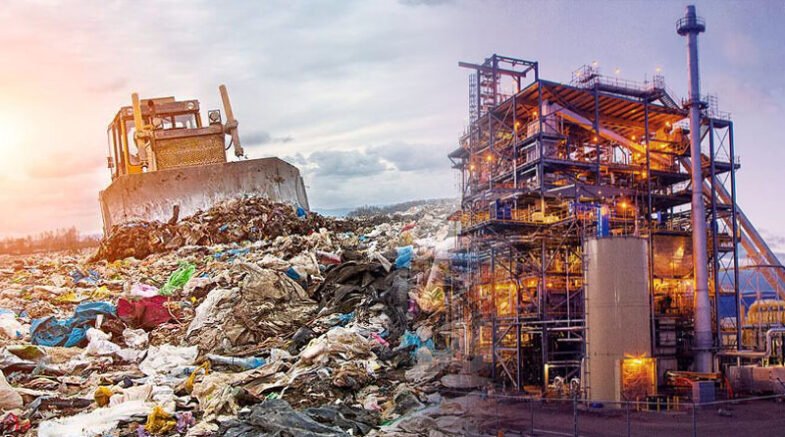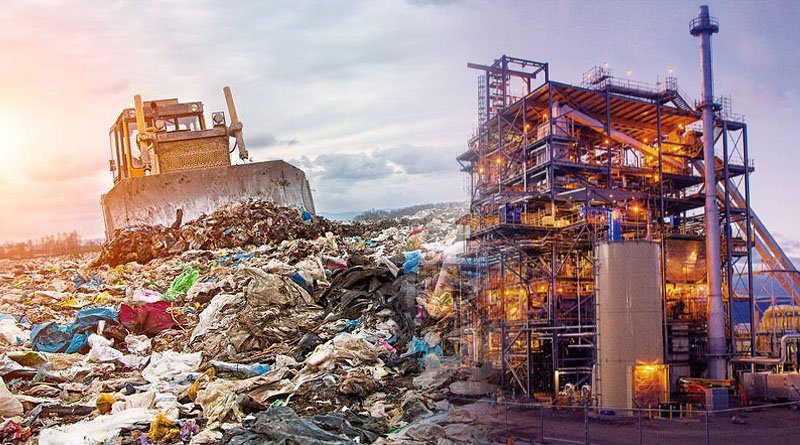For the first time, a biofuels plant located just east of Reno-Sparks has converted landfill waste into synthetic crude oil.

Fulcrum BioEnergy announced this week that its Sierra BioFuels Plant in Storey County produced low-carbon synthetic fuel from landfill waste. The facility is housed within the Tahoe Reno Industrial Center, which also houses Tesla’s Gigafactory and Redwood Materials’ new battery recycling and materials facility.
“This achievement is a watershed moment for Fulcrum and opens the door for our plans to transform landfill waste around the world into a low-carbon transportation fuel with a profound environmental impact,” said Fulcrum president and CEO Eric Pryor in a statement.
“Successfully creating a low-carbon fuel entirely from landfill waste validates the strength of our process and our partners’ unwavering belief in and support for our business model after more than a decade of dedication and perseverance.”
The Fulcrum Sierra BioFuels Plant is located in Storey County at the Tahoe Reno Industrial Center. At times, it was the first US commercial scale project to convert municipal solid waste feedstock or household garbage into low-carbon transportation fuel.
The Fulcrum Sierra Biofuels Plant completed construction in 2021 and began operations in May of this year to produce high-quality hydrocarbon synthetic gas, or “syngas” for short. According to the company, the facility will convert 175,000 tonnes of municipal solid waste into 11 million gallons of zero-carbon synthetic crude each year.
Nevada Senator Catherine Cortez Masto is among those who support the project. The Democratic senator urged the EPA to expedite a stalled rulemaking process that was preventing the plant from producing biofuel.
According to Fulcrum, the synthetic crude oil produced in the plant will be further processed into products such as sustainable aviation fuel and diesel. United Airlines, Cathay Pacific, and the holding company SK Innovation are among the company’s partners.
United Airlines described the development as a critical step toward its goal of reaching net-zero carbon emissions by 2050. Cathay Pacific also praised the announcement, stating that it intends to use 10% of its fuel from sustainable sources such as Fulcrum by 2030.
Fulcrum’s long-term goal is to produce 400 million gallons of zero-carbon transportation fuel per year at its various facilities. The company’s projects include the Centerpoint BioFuels Plant in Indiana, the Trinity Fuels Plant in the Texas Gulf Coast region, and the NorthPoint project in the United Kingdom, in addition to the Nevada plant.
